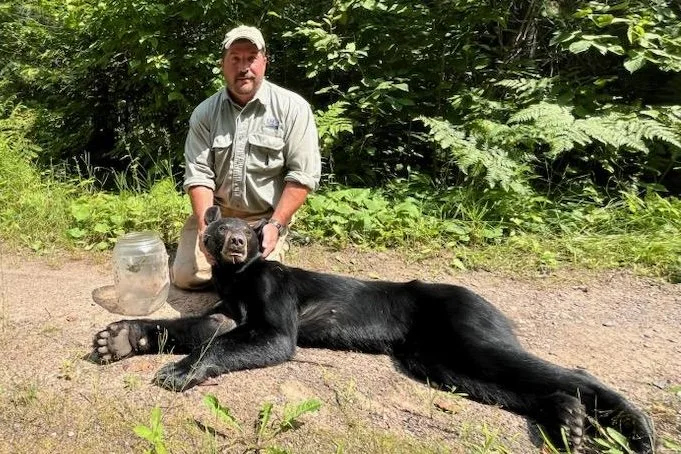For the first time in 60m years, an ancient plant has produced male and female cones in Britain outdoors. Botanists say this is a sign of global warming.
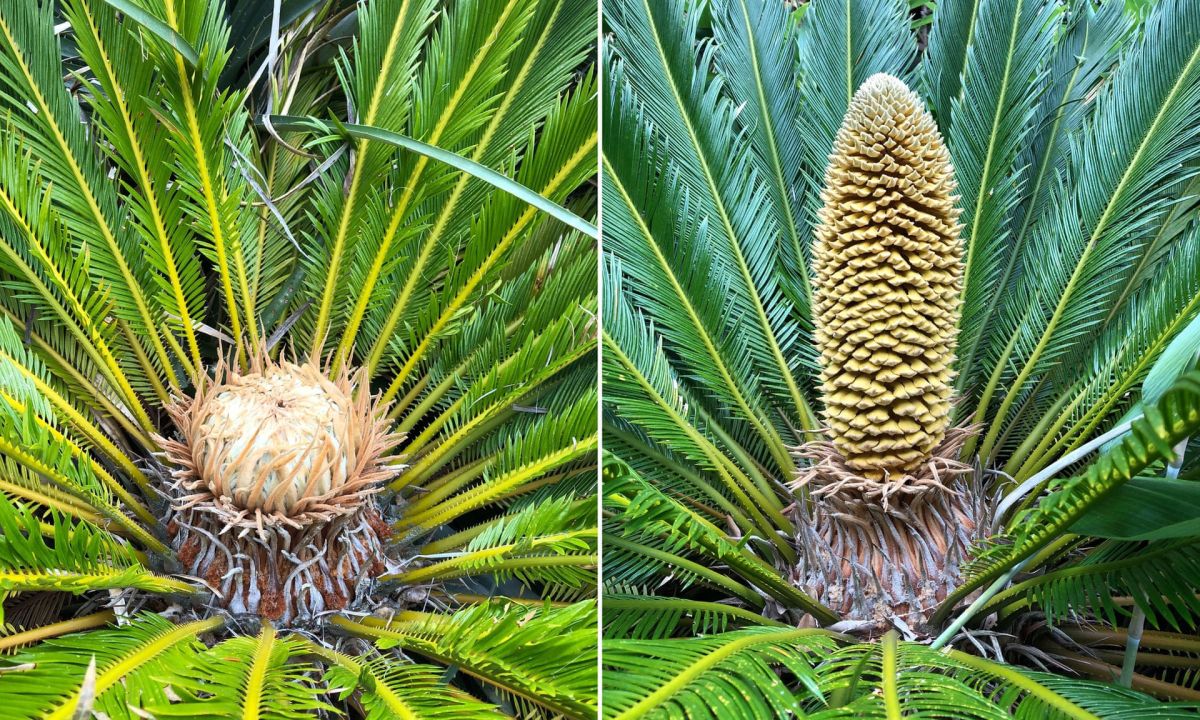
60 million years ago, the Cycad plant, or Sago palm (Cycas revoluta) grew naturally in the UK. For the first time since then, botanists have been able to produce both male and female cones on Cycads outdoors.
Originally native to Japan, these plants typically prefer warm temperates and grow in subtropical regions. So how come they’re back to the UK? Well, apparently it all has to do with climate change.
Back in 2012, botanists at the Ventnor Botanic Gardens on the Isle of Wight produced a male cone outdoors, but it wasn’t before 7 years later that a female cone also appeared. This made it possible for the team to transfer pollen and generate seeds for the first time in millions of years!
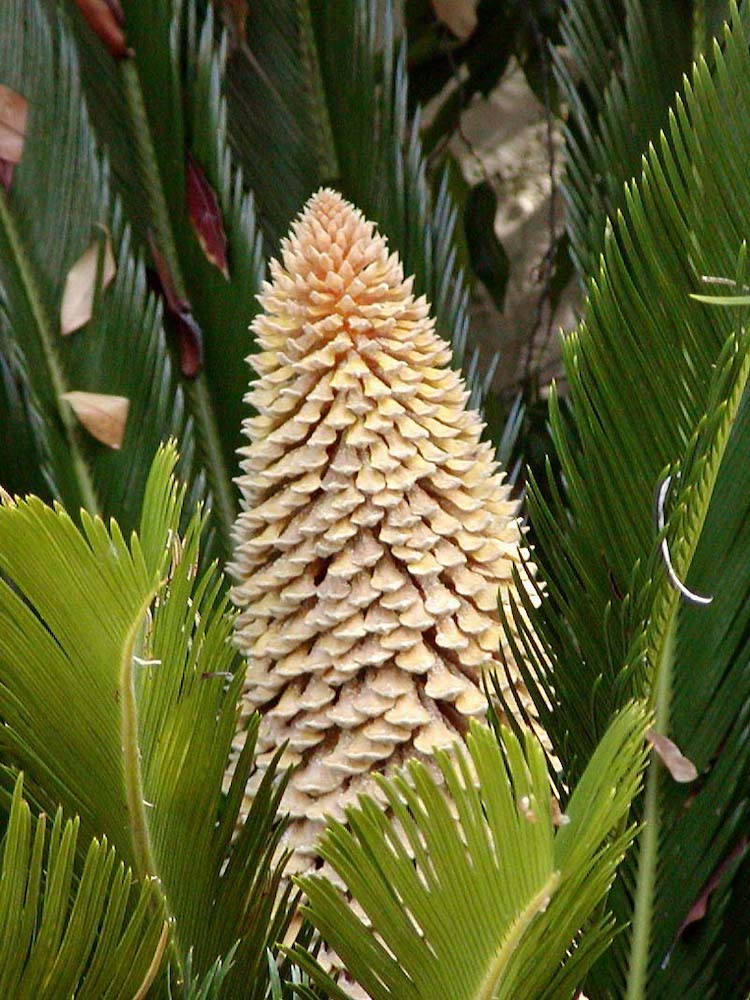
Male cone (Photo: Stan Shebs [CC BY-SA 3.0])
The Isle of Wight has a microclimate with an average temperature that is several degrees higher than in the rest of the UK, which makes it an ideal setting for growing these prehistoric plants. However, the ability of these plants to now thrive outdoors is an indication that the climate is changing.
“Fifteen, 20 years ago we started growing cycads—it started as an experiment, something you wouldn’t normally do,” Ventnor Botanic Garden curator Chris Kidd explains. “Fifteen years on, they’re not only surviving winters, growing and producing leaves. Five years ago we had a male cycad that produced a cone, and this year we have a male and female both producing cones. The direction of travel with climate change is very profound. We’re getting plants that you wouldn’t normally get to grow outdoors growing outdoors, cycads producing cones, which is quite extraordinary.”
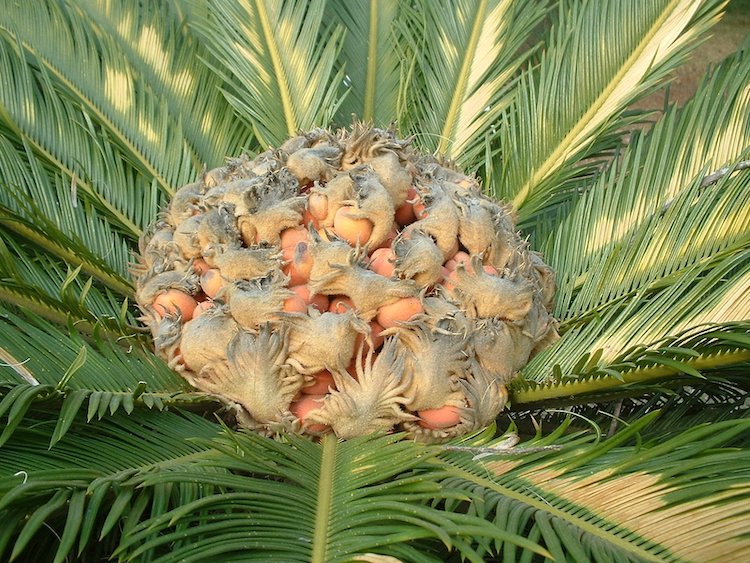
Female cone (Photo: Wikipedia [CC BY-SA 3.0])
The return of the Cycad has been helped by recent European heatwaves. Kidd says they’ve been able to have to plant more and more types of exotic flora in their botanic gardens due to the rising temperatures. Records kept at the botanic garden show that the highest average temperatures for January 100 years ago were lower than today’s lowest average for the same month. As a result, the 27-hectare (67-acre) garden, with a climate milder than any other part of Britain except the Isles of Scilly, is capable of growing plants that would have once been unable to survive a British winter.
While this might sound interesting and exciting at first, for other types of crops and plants these changes in temperature can be devastating.
“It’s not something that’s happened with a short-term mild spell. It’s a longer-term warming which is making these things happen,” Kidd said. “The [cycad] plant will have made the decision to commit to cone production [in summer 2018], and that production is set in place to run through over winter and produce the following year.
“Thirty years ago we couldn’t have grown them. But these plants have been growing out of doors here in the gardens for 15 years, going through their natural cycles.”
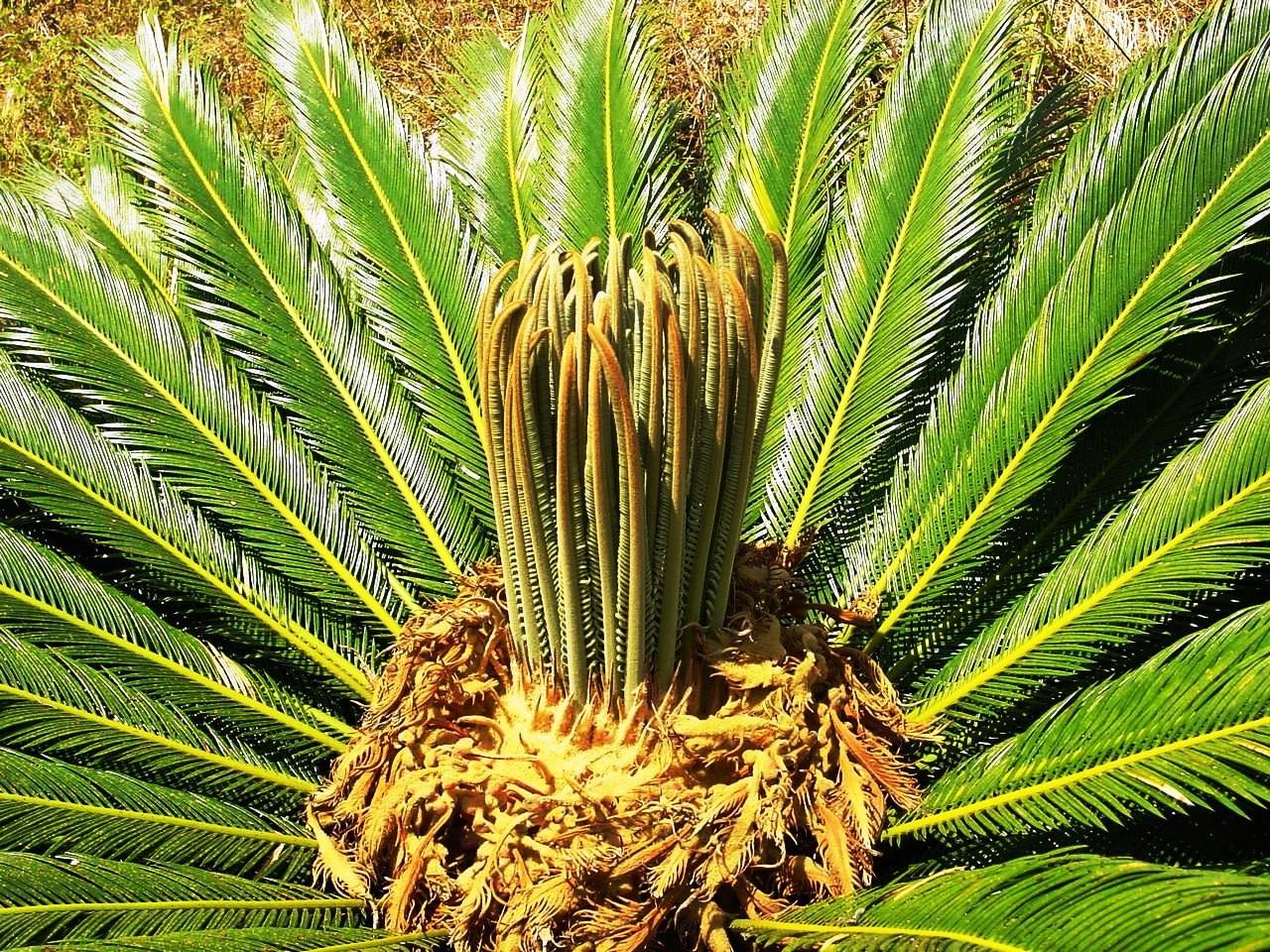
Cycas revoluta in spring. Photo: Esculapio [CC BY-SA 2.5])
A relic from ancient times before flowering plants appeared, in its native Japan Cycas revoluta is believed to be pollinated by beetles. In the botanic garden, the plant with a male cone is placead some distance away from the female and the pollen is to be transferred by hand within about a week.
“By crossing them and making seed from them we’re doing something that has never been done before in the UK,” Kidd pointed out. “We see the undercliff here as being a predictor for the wider British landscape in 20 to 30 years time.”
Cycads have only three surviving species of an ancient and largely extinct lineage that has changed little since the Jurassic period. We can safely consider these plants “living fossils” that are now returning to Europe and maybe even Antarctica, as Jurassic-era fossils of specimens strikingly similar to the present-day plants have been found on both continents.
And that, probably, isn’t good news.

